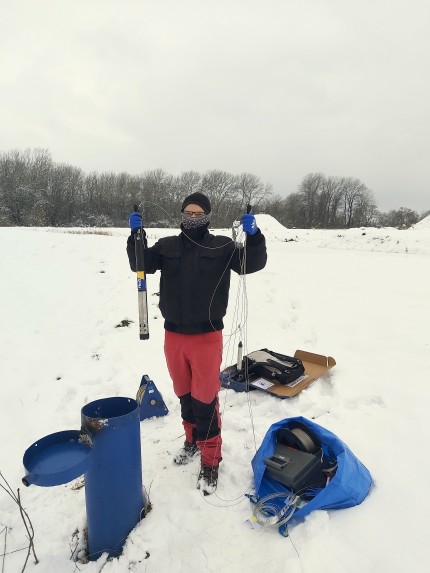Poland
PILOT STUDIES
The developed methodology facilitating the selection of locations for one of the six MAR types in Central Europe is currently being implemented in pilot areas. In Poland, detailed research focuses on the possibility of applying two methods, i.e. infiltration ditches (ID) and induced river/lake bank filtration (IRLBF).
The map below is an example of result of generall mapping, based on that, we concluded that more than 12% of the entire area (Dunajec catchment) can be classified as regions where this type of MAR can be potentailly applied. On the basis of the conducted works we managed to select 3 areas where IRLBF has the greatest potential to be implemented.
One of these three areas has undergone extensive research. In Tarnów and the surrounding area, specific field studies are currently being continued, including detailed recognition of hydrogeological conditions in order to collect input data for hydrological and hydrogeological model investigations.
The conducted works include geophysical, hydrological and hydrogeological measurements, water sampling and soil for laboratory tests.
The knowledge of geological and hydrogeological conditions is crucial for the location of an appropriate type of Managed Aquifer Recharge (MAR). For this reason, one of the non-invasive methods of investigation of soil and water environment was applied. Electrical resistivity tomography (ERT) is one of the geophysical methods, consisting in automatic measurement of electrical resistance between individual electrodes along the measuring line. The interpretation is based on the calculation of the electrical resistivity values and the depth from the input data using Jacoby matrix and forward modelling procedures. In the area of research, 10 cross sections with a total length of less than 2 km were carried out.
The research will allow us to determine the benefit of MAR and its usefulness from economic and environmental point of view.

